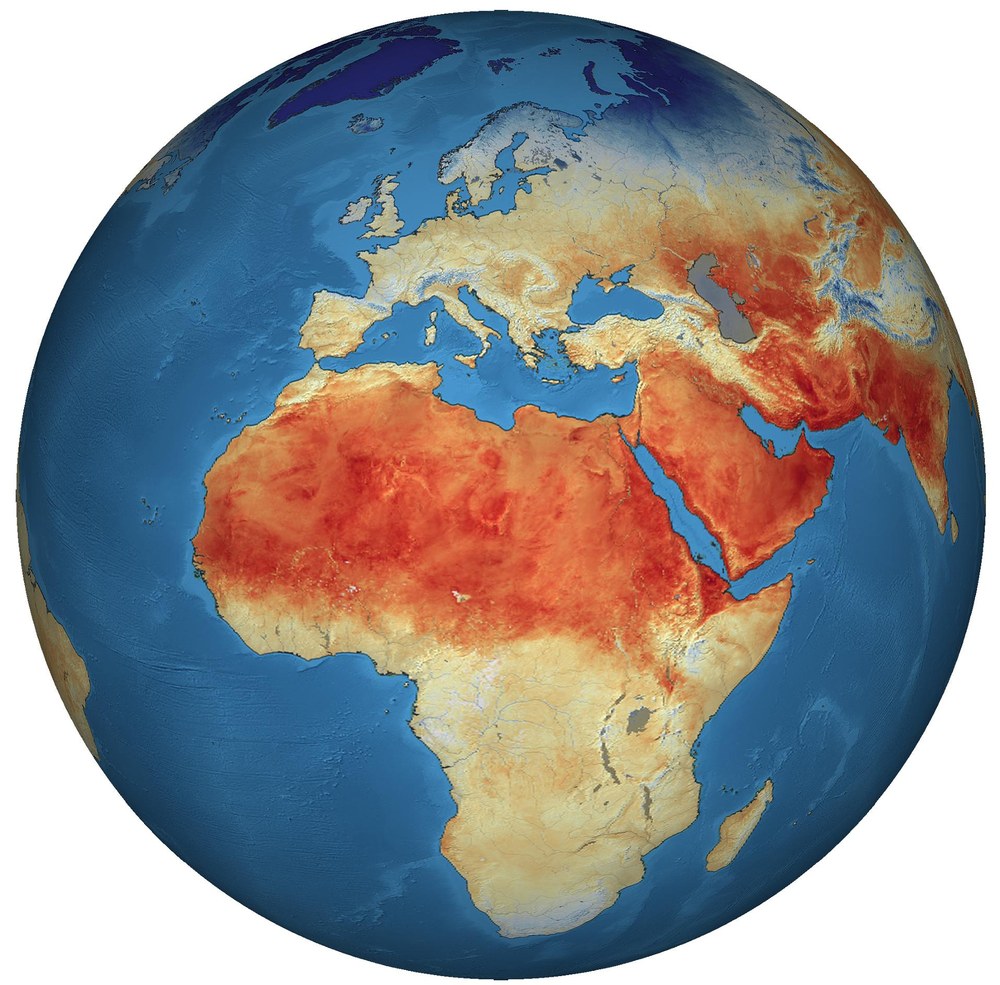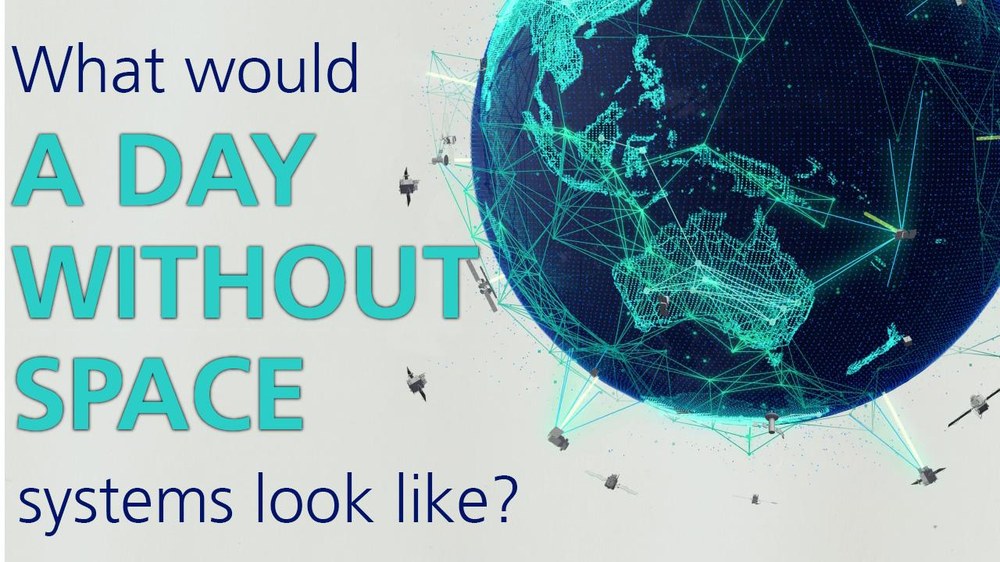A new animation shows 'A day without space'

- A new animation shows just how much space influences our everyday lives.
- Space technologies and applications drive innovation and are deeply embedded in the economy and society at large.
- Focus: Space, digitalisation, environment and climate, mobility
What would happen if all the satellites orbiting Earth stopped working? In short, global chaos would ensue. "Satellites have long been an integral part of our day-to-day lives. The services they provide are indispensable for mobility on land, at sea and in the air, for all power and communications networks, for the international systems used for financial transactions, global weather forecasting and the energy transition. If these satellites were to stop working, our modern world would be set back decades in a matter of seconds," says Walther Pelzer, Executive Board Member at the German Aerospace Center (Deutsches Zentrum für Luft- und Raumfahrt; DLR) and Head of the German Space Agency at DLR in Bonn. The German Space Agency at DLR implements the national space strategy on behalf of the Federal Government. This primarily involves Germany’s participation in the activities of the European Space. "Approximately 1.2 billion euros per year are available for this purpose," says Pelzer. A new animation, entitled 'A day without space', aims to show that this money is well spent by illustrating in just a few minutes how strongly our modern lives are already dependent on space-based technologies and services. He continues: "Spaceflight is the driving force behind the development of future technologies. Maintaining and protecting our space infrastructure is absolutely essential. We live in a global, knowledge-based society and space provides essential core and transformational services."

What would a day without space look like?
Your consent to the storage of data ('cookies') is required for the playback of this video on Youtube.com. You can view and change your current data storage settings at any time under privacy.
German Space Agency at DLR
Satellites set the pace for modern life
Navigation satellites are the clocks that set the rhythm of modern life. If, for example, the satellites of the European Galileo system were to fail, we would lose the highly accurate timestamps that they provide. Financial transactions would become impossible without these precise time signals; people would no longer be able to withdraw money from ATMs and stock trading would come to a standstill. The end result would be a global financial collapse. In addition, the supply of electricity would be interrupted, as all the power networks rely on those same high-precision time signals. Land and water transport would be severely impaired, and air transport would be altogether impossible.
If communications satellites were to fail, our mobile networks would suffer severe outages and live TV broadcasting would no longer be possible. In future, high-speed broadband internet communications will increasingly be carried by satellites. Communications satellites will also be used by the new 5G mobile communications standard. Failure of the European Copernicus Earth observation and Meteosat weather satellites would bring weather forecasting to a halt and stop the supply of climate and environmental data, with far-reaching consequences for all sectors that rely on dependable weather and environmental data.
Without Earth observation satellites we would cease to have precise, continuous weather forecasting and constant global data series on the current condition, changing state or degradation of Earth and its climate, especially in terms of greenhouse gases such as ozone. We would also lack the important information we need to get a quick and reliable picture of emergency situations for relief workers, for example in the event of natural disasters such as earthquakes, floods and forest fires.
Space in a global context
Space infrastructure relies on close international cooperation. Space projects are for the benefit of humankind, and extend beyond national borders. "As the German Space Agency at DLR, we work closely with partners in Germany, elsewhere in Europe and all over the world. We do this as part of the national space programme and through Germany's contributions to ESA and to the European Organisation for the Exploitation of Meteorological Satellites (EUMETSAT). We are also a point of contact regarding space matters for the European Union, particularly the future EU agency EUSPA (European Union Agency for the Space Programme) and the forthcoming EU research framework programme Horizon Europe. We are committed to ensuring that important space contracts, both nationally and abroad, are awarded to German companies, in order to strengthen expertise and innovation in Germany. We are particularly keen on involving small and medium-sized enterprises and start-ups in this," says Pelzer, who is also Head of the German delegation to ESA.
The animation 'A day without space' can be watched in German or English on the YouTube channel of the Germany Space Agency at DLR.
The 4K video is also available for download as a clean feed. Credit: German Space Agency at DLR.
Find out all the latest from the German Space Agency at DLR via their twitter account @DLR_SpaceAgency - 100% Space!


